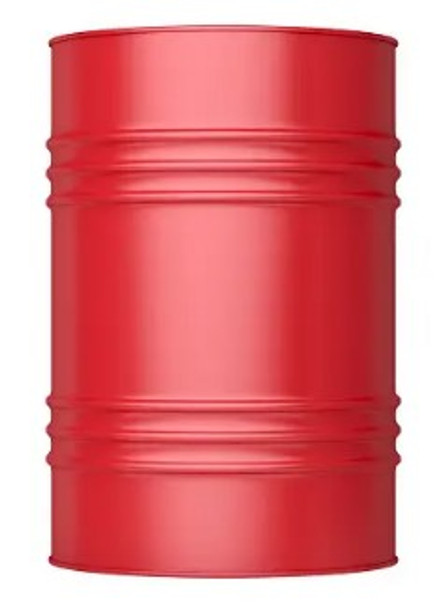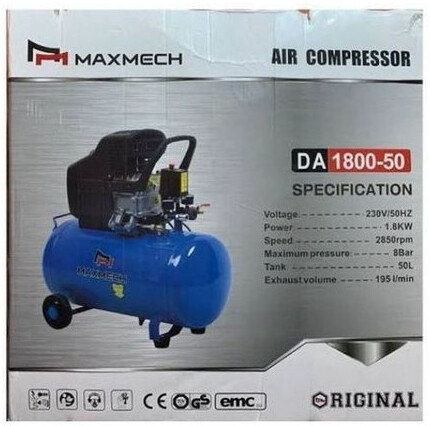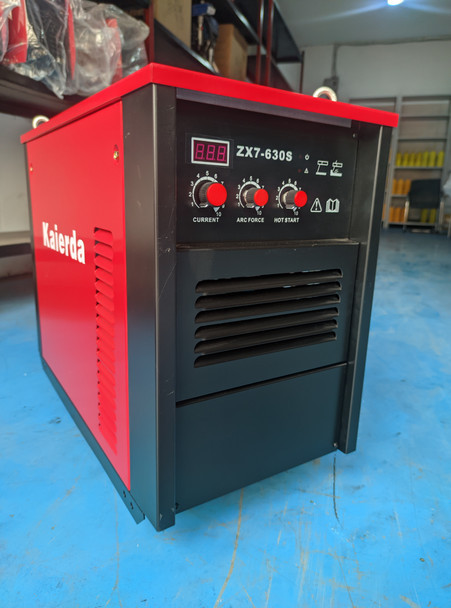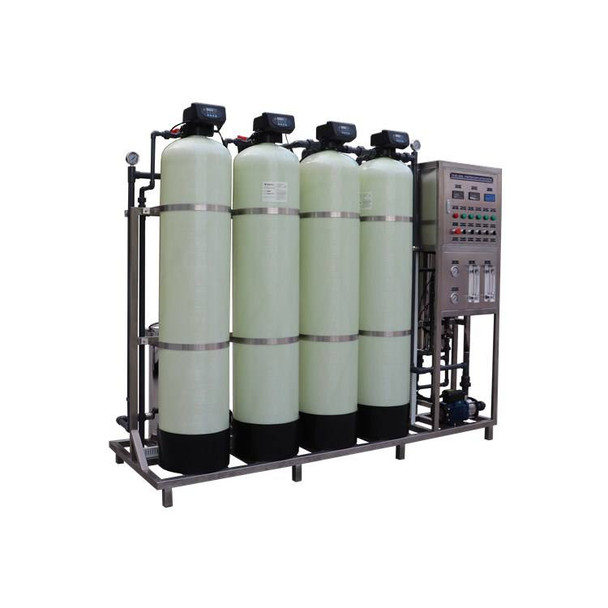Asaba's Growing Manufacturing Sector: Essential Supplies for Diverse Industries
Key Takeaways
- Diverse Industry Needs: Asaba's manufacturing sector includes industries such as food processing, textiles, and construction, each requiring specialized supplies and equipment to enhance productivity.
- Essential Machinery: Advanced machinery such as industrial mixers, conveyor systems, and automated packaging solutions are critical for streamlining operations and improving output.
- Maintenance and Repair Supplies: Regular access to high-quality maintenance supplies like lubricants, spare parts, and cleaning products is vital for preventing breakdowns and maintaining operational efficiency.
- Raw Material Sourcing: Reliable sourcing of raw materials, such as steel, textiles, and chemicals, is crucial for sustaining production levels and meeting market demand.
- Skilled Workforce: Investing in employee training and development is essential for effectively operating machinery, ensuring quality control, and maintaining productivity across various industries.
Introduction
Asaba's growing manufacturing sector is becoming a vital hub for diverse industries, including food processing, textiles, and construction. To sustain this growth, access to essential supplies and equipment is crucial for maintaining efficiency and competitiveness.
Advanced machinery, such as industrial mixers, conveyor systems, and automated packaging solutions, helps streamline operations, boosting output and product quality. Equally important are high-quality maintenance supplies like lubricants and spare parts, which reduce downtime and ensure smooth operations. Additionally, reliable sourcing of raw materials, coupled with a skilled workforce trained in modern equipment use, plays a pivotal role in driving the sector's success and meeting market demand.
This article delves into the key supplies necessary for supporting diverse manufacturing industries in Asaba, highlighting their impact and offering insights into how they contribute to the sector’s success.
LubeMax Heat Transfer Oil
Overview of Asaba’s Manufacturing Growth
Asaba's transformation into a manufacturing powerhouse has been fueled by strategic investments and infrastructural improvements. Historically known for its trade and agricultural activities, the city has diversified into various manufacturing sectors, including automotive parts, textiles, and food processing. Recent developments have seen the establishment of numerous industrial parks and manufacturing facilities, further cementing Asaba's role in Nigeria's industrial economy.
Key Statistics and Growth Indicators
The manufacturing sector in Asaba has witnessed impressive growth, with several indicators reflecting this trend:
1. Increase in Industrial Output: There has been a notable rise in production volumes across various industries.
2. Job Creation: The sector has created thousands of jobs, contributing to local employment and skill development.
3. Investment Inflows: Significant investments have been made by both domestic and international companies, underscoring the sector’s potential.
Major Industries Contributing to This Growth
Several industries are driving Asaba’s manufacturing expansion:
1. Automotive Parts: Local and international car manufacturers are setting up facilities to produce and assemble automotive components.
2. Textiles: The textile industry is experiencing growth due to both local demand and export opportunities.
3. Food Processing: With a focus on enhancing food security, food processing facilities are increasingly prevalent.
Maxmech Air Compressor Da 1800-50
Essential Supplies for the Manufacturing Sector
1. Machinery and Equipment
Machinery and equipment are the backbone of any manufacturing operation. Asaba’s growing manufacturing sector relies heavily on various types of machinery to maintain production efficiency and quality. Key machinery types include:
1. CNC Machines: Computer Numerical Control (CNC) machines are crucial for precision manufacturing, allowing for automated cutting, milling, and drilling of materials. These machines enhance productivity and ensure high-quality output with minimal human intervention.
2. Air Compressors: Air compressors are essential for powering pneumatic tools and equipment. They provide a reliable source of compressed air, which is used in various manufacturing processes, from assembly lines to spray painting.
3. Welding Equipment: Welding is a fundamental process in metal fabrication. Modern welding equipment, including MIG and TIG welders, is vital for joining metal components and ensuring structural integrity.
Importance of Modern Machinery
The integration of modern machinery in Asaba’s manufacturing sector has significantly boosted production efficiency. Advanced equipment not only speeds up manufacturing processes but also improves product quality and consistency. For instance, CNC machines enable precise machining of complex parts, reducing waste and enhancing overall production capabilities.
Examples of Popular Machinery Used in Asaba’s Manufacturing
Several manufacturers in Asaba have adopted state-of-the-art machinery to stay competitive. Notable examples include:
1. High-Speed CNC Mills: Used for precise component manufacturing in automotive and aerospace industries.
2. Rotary Screw Air Compressors: Employed in various manufacturing processes for consistent air supply.
3. Robotic Welding Systems: Implemented in metalworking facilities for automated welding operations.
Kaierda inverter manual arc welding machine ZX7-630S
2. Raw Materials and Components
Raw materials and components are the foundation of any manufacturing process. The quality and availability of these materials directly affect the efficiency and output of manufacturing operations. In Asaba, several key raw materials and components are essential for diverse industries:
Metals: Steel, aluminum, and other metals are fundamental for industries such as automotive, construction, and machinery. These materials are used for producing parts, tools, and structural components.
Polymers: Plastics and synthetic materials are crucial for industries ranging from packaging to automotive manufacturing. Polymers are used to create a variety of products, including components, packaging materials, and consumer goods.
Textiles: For the textile industry, raw fabrics and fibers are essential. These materials are processed into clothing, upholstery, and other textile products.
Suppliers and Sourcing Considerations
Sourcing high-quality raw materials is critical for maintaining production standards. Manufacturers in Asaba often rely on both local suppliers and international imports. Key considerations for sourcing include:
Quality Assurance: Ensuring that materials meet industry standards and specifications.
Cost Efficiency: Balancing quality with cost to maintain competitive pricing.
Availability and Lead Times: Securing a reliable supply chain to avoid production delays.
Impact of Quality Raw Materials on End Products
The quality of raw materials has a direct impact on the final product. High-quality materials contribute to better durability, performance, and overall product excellence. For example, using premium-grade metals in automotive parts can lead to improved vehicle performance and longevity.
3. Maintenance and Repair Supplies
Maintenance and repair supplies are essential for keeping manufacturing equipment in optimal working condition. Regular maintenance helps prevent downtime, extend equipment life, and ensure smooth operations. Key maintenance supplies include:
Lubricants: Proper lubrication is critical for reducing friction and wear in machinery. High-quality lubricants help maintain smooth operation and prevent overheating.
Cleaning Agents: Cleanliness is crucial for equipment performance and safety. Cleaning agents are used to remove contaminants, dust, and residue from machinery and work surfaces.
Replacement Parts: Spare parts are necessary for repairing and replacing worn or damaged components. Having a stock of critical replacement parts can minimize production interruptions.
Reverse Osmosis Water Treatment Plant
Recommended Brands and Products
Selecting the right maintenance products can significantly impact equipment reliability. Some recommended brands for maintenance supplies include:
Lubemax: Known for high-performance lubricants and oils.
Epochem: Offers a range of cleaning agents and maintenance solutions.
SKF: Provides quality bearings and replacement parts.
4. Safety and Compliance Equipment
Safety and compliance equipment are essential for creating a safe working environment and adhering to industry regulations. Key safety gear includes:
1. Personal Protective Equipment (PPE): Items such as helmets, gloves, goggles, and ear protection are critical for safeguarding workers from hazards.
2. Safety Signs and Labels: Clear signage helps communicate potential hazards and safety protocols to employees.
3. Compliance Gear: Equipment and tools that ensure adherence to safety standards and regulations, including fire extinguishers and first aid kits.
Role of Safety Equipment in Preventing Workplace Accidents
Investing in high-quality safety equipment helps prevent accidents and injuries, ensuring a safe working environment. Compliance with safety regulations also protects businesses from legal liabilities and potential fines.
5. Environmental Management Supplies
Environmental management is increasingly important in manufacturing, with a focus on reducing the sector's environmental footprint and ensuring sustainable practices. Essential supplies for environmental management include:
1. Waste Management Systems: Effective waste management solutions, such as recycling bins and waste separation systems, help reduce the impact of manufacturing waste on the environment.
2. Energy-Efficient Machinery: Investing in energy-efficient machinery can lower energy consumption and reduce operational costs. Technologies such as variable frequency drives and energy-efficient motors are examples of eco-friendly equipment.
3. Corrosion Inhibitors and Coolants: Products like corrosion inhibitors and coolants help protect machinery from damage caused by rust and overheating, contributing to longer equipment life and reduced maintenance needs.
Examples of Eco-Friendly Products and Practices
Several eco-friendly products and practices are gaining traction in Asaba’s manufacturing sector:
1. Recycling Programs: Manufacturers are implementing recycling programs to manage waste effectively and reduce landfill use.
2. Green Certifications: Achieving certifications such as ISO 14001 for environmental management demonstrates a commitment to sustainable practices.
3. Energy Management Systems: Advanced energy management systems help track and optimize energy usage, contributing to overall efficiency and sustainability.
Epochem Distilled Water 20 Liters
Future Trends and Innovations
The manufacturing sector is evolving with advancements in technology. Some emerging trends include:
Smart Technology: Integration of IoT (Internet of Things) and AI (Artificial Intelligence) for real-time monitoring and automation.
Additive Manufacturing: Growth in 3D printing technologies for customized and rapid prototyping.
Potential Impact of New Technologies on Asaba’s Manufacturing Sector
New technologies are expected to further enhance productivity and efficiency. For instance, smart technology can optimize manufacturing processes by providing real-time data and predictive maintenance insights. Additive manufacturing could revolutionize production by enabling rapid customization and reducing material waste.
How Businesses Can Prepare for and Adapt to These Trends
Businesses in Asaba should stay informed about technological advancements and consider investing in smart technologies and training to stay competitive. Collaborating with technology providers and participating in industry seminars can also help businesses adapt to emerging trends.
Frequently Asked Questions
1. What types of machinery are essential for manufacturing in Asaba?
CNC machines, air compressors, and welding equipment are crucial for various manufacturing processes.
2. How can manufacturers ensure they source high-quality raw materials?
By partnering with reputable suppliers, checking material certifications, and conducting quality tests.
3. Why is maintenance important in manufacturing?
Regular maintenance prevents equipment failure, reduces downtime, and extends the lifespan of machinery.
4. What safety equipment should be prioritized in a manufacturing facility?
Personal protective equipment (PPE), safety signs, and compliance gear are essential for worker safety.
5. How can manufacturers stay updated on new technologies?
By following industry news, attending trade shows, and engaging with technology providers.
Conclusion
In conclusion, Asaba’s growing manufacturing sector is supported by a range of essential supplies that contribute to its success. From advanced machinery and high-quality raw materials to effective maintenance and safety equipment, these supplies are crucial for maintaining productivity and ensuring safety. As the sector continues to expand, staying updated on new technologies and practices will be vital for sustained growth.
For manufacturers looking to source high-quality supplies and equipment, visit GZ Industrial Supplies to explore a wide range of products designed to meet the needs of diverse industries.













